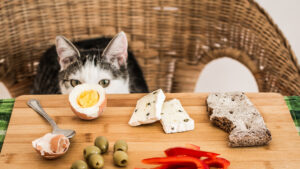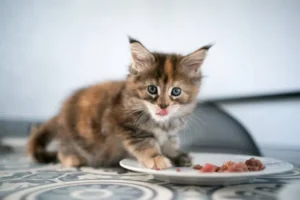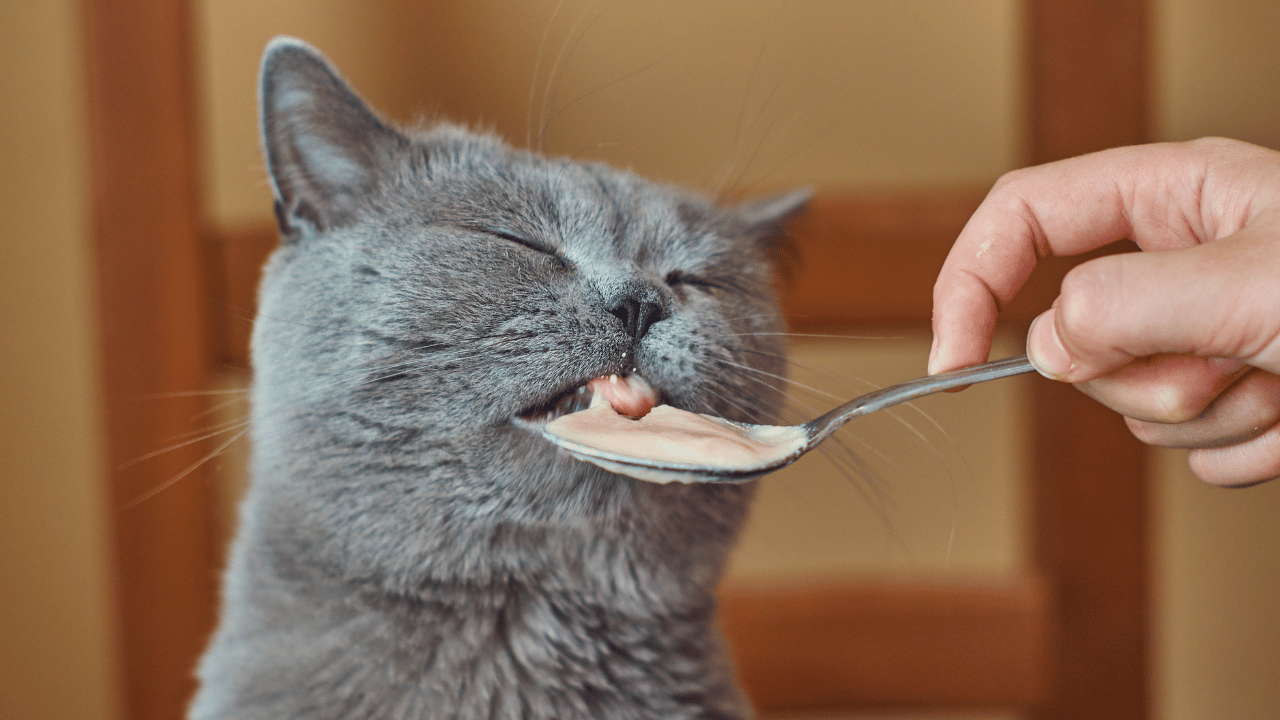What natural foods can kittens eat? If you are thinking of sharing a couple of your meals of choice with the beloved cat you have, you undoubtedly wish to know what kinds of meals kitties are allowed to consume. The response to such a query relies upon the meal.
Though certain natural meals are healthy for cats, others could lead to toxicity or significant health problems. We have compiled an extensive compilation of natural meals or treats that cat babies may consume to assist people in making wise choices.
What natural foods can kittens eat?
Fruits:
Most fruits are edible to cat babies, though only when used in moderation. Fruits are heavy in carbohydrates, so if consumed in excess, they could lead the feline to become overweight or develop diabetes.
Furthermore, while giving fruits to satisfy your furry friend, you should rinse them well and eliminate any pieces difficult for kittens to swallow or chew, like the seeds and peels. Among the fruits that kitties may consume are:
Bananas:
Bananas are fibre-rich and an excellent source of various vitamins and minerals. Homemade natural kitten treats such as smash bananas should constitute 10% of your cat’s regular meal. However, due to their high sugar content, they must be provided in small quantities.
Pears:
Pears have a lot of sugar but contain nutrients and nutritional fibre, which help shield your cat from leukaemia and illnesses. Take care to remove the seeds and skin and consume them sparingly. Cats cannot eat the seeds of pears as they contain the dangerous chemical cyanide.
Blueberries:

Blueberries are rich in solid antioxidants and vitamin C. They shield tissues against harmful components and help reduce the risk of urinary tract infections. A minimal quantity of blueberries could be an appetizer for your cat babies.
Strawberries:
Strawberries can be fed to cats uncooked, frozen, or puréed. A tiny serving of these delicious reddish fruits, which are high in potassium, fibre, and vitamin C, could boost your cat babies’ immune function and wellness.
Watermelon:
Watermelon improves your furry friend’s hydration levels by containing over 90% water and essential vitamins. K. Honeydew and Cantaloupe fruit are two more melon varieties that kittens can comfortably eat. However, removing the outer hard layer and inner seeds is best before feeding them to cat babies.
What natural foods can kittens eat? Fish and Meat:
Meat:
Felines get most of their micronutrients from meat, which is high in amino acids and proteins. Each meat will go for the feline as it is prepared and delivered—without adding flavours or relishes.
When it comes to cooking techniques, serve meat that has been heated, barbecued, or cooked instead of fried, which is high in oil. Also, ensure your meat has been perfectly cooked so all harmful bacteria and viruses are dead or removed.
Fish:
Fish is rich in minerals, vitamins, and essential saturated fats and fish is the best healthy food for kittens. It should be fed to cats, cooked, and sliced into small portions minus any additions. Choose fish that has been freshly caught rather than farmed, and be sure to remove the bones and skeleton thoroughly.
Grains and cereals:
Like veggies and fruits, kittens do not need carbs daily. Iron, nutrients, dietary fibre, whole grains, and wheat-based cereals that haven’t been refined are potentially beneficial for them. Once more, they should be provided as a special treat rather than a daily requirement.

Eggs:
If eggs are prepared (boiled or scrambled), they are safe to be served to kittens without risk and represent an ideal supplier of proteins and nutrients. Never feed uncooked eggs to your cat.
Vegetables:
Because kittens are mandatory carnivores, they must eat animal-based foods to obtain every nutrient their bodies need. It indicates that veggies and fruits aren’t intended for the cat babies to consume.
On the other hand, since vegetables possess minerals and vitamins that meat does not, certain vegetables are permitted to be correctly given in limited quantities and frequently. Their high water percentage, minimal fat, and low-calorie energy content may make them particularly beneficial for overweight cats.
Rice:
If given in moderation and cooked thoroughly, kittens can sometimes safely enjoy rice as a snack. Rice’s abundant fiber may benefit kitties with gastrointestinal problems and constipation.
It’s not a component of a cat’s regular food and is unlikely to offer any health advantages. As natural carnivores, kitties shouldn’t consume grains too frequently.
Conclusion
Feeding your kitten a variety of natural foods can be a healthy and enjoyable way to diversify their diet, provided you make informed choices. While kittens can safely consume many fruits, vegetables, meats, and grains, moderation and preparation are key. Fruits like bananas, pears, blueberries, strawberries, and watermelon offer vitamins and hydration but should be given sparingly due to their sugar content.
Meat and fish, crucial for a kitten’s protein and nutrient needs, should be well-cooked and free from additives. Grains and vegetables can supplement their diet occasionally, offering fibre and essential nutrients. Always ensure the food is safe, free from harmful components, and introduced gradually to avoid digestive issues. You can contribute to your kitten’s overall health and well-being by carefully selecting and preparing these natural treats.

